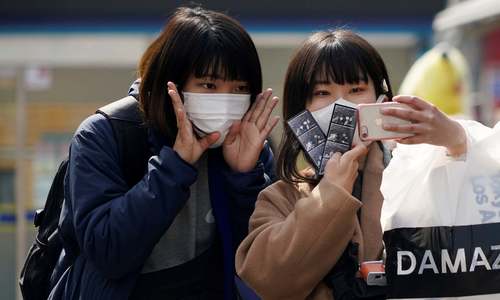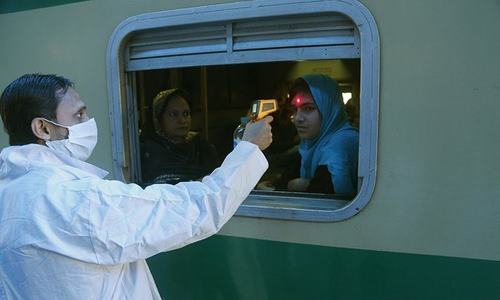In a controversial step, South Korea’s government said it would strap electronic wristbands on people who defy self-quarantine orders as it tightens monitoring to slow the spread of the new coronavirus.
Senior Health Ministry official Yoon Tae-ho on Saturday acknowledged the privacy and civil liberty concerns surrounding the bands, which will be enforced through police and local administrative officials after two weeks of preparation and manufacturing.
Read: In global war on coronavirus, some fear civil rights are collateral damage
But he said authorities need more effective monitoring tools because the number of people placed under self-quarantine has ballooned after the country began enforcing 14-day quarantines on all passengers arriving from abroad on April 1 amid worsening outbreaks in Europe and the United States.
Lee Beom-seok, an official from the Ministry of the Interior and Safety, admitted that the legal grounds for forcing people to wear the wristbands were “insufficient” and that police and local officials will offer consent forms for the devices while investigating those who were caught breaking quarantine.
Under the country’s recently strengthened laws on infectious diseases, people can face up to a year in prison or fined as much as $8,200 for breaking quarantine orders. Lee said those who agree to wear the wristbands could be possibly considered for lighter punishment.
South Korean officials on Friday reported 91 patients thought cleared of the new coronavirus had tested positive again.
Jeong Eun-kyeong, director of the Korea Centers for Disease Control and Prevention (KCDC), told a briefing that the virus may have been “reactivated” rather than the patients being re-infected.
South Korean health officials said it remains unclear what is behind the trend, with epidemiological investigations still under way.















































